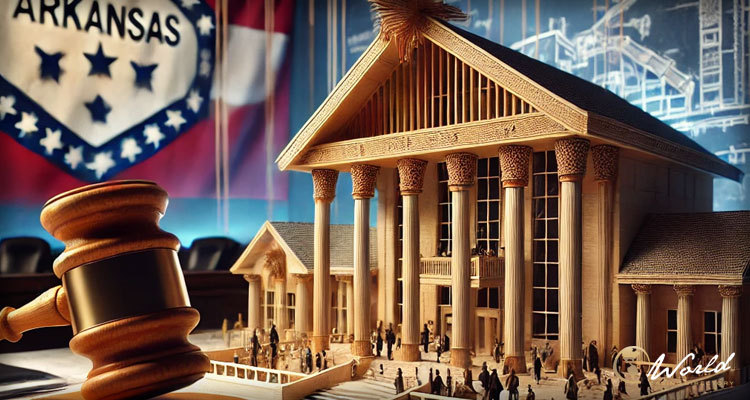In a significant legal move, Cherokee Nation Entertainment, together with a newly formed affiliate, has petitioned the Arkansas Supreme Court to dismiss a ballot measure that could obstruct their planned casino project. This action comes a day after the secretary of state confirmed the measure’s qualification for the upcoming November ballot.
Legal dispute over ballot language and process:
The lawsuit targets the proposed constitutional amendment initiated by the Choctaw Nation of Oklahoma, alleging multiple violations related to the signature collection process. The challenge particularly criticizes the phrasing of the ballot proposal, deeming it “riddled with flaws” and misleading for voters. Dover Mayor Roger Lee, an official of the Arkansas Canvassing Compliance Committee, expressed concern, stating, “Arkansans must be made aware of this deliberate scheme to openly violate Arkansas laws regarding canvassing and to mislead and confuse voters.”
As the Associated Press (AP) reports, John Thurston, Arkansas Secretary of State, named as the defendant, has opted not to comment on the ongoing legal matter. Meanwhile, the group Local Voters in Charge, which supports the ballot measure, remains steadfast in its commitment to ensuring local voter control over casino developments in their communities.
Hans Stiritz, a spokesperson for Local Voters in Charge, criticized the lawsuit’s intent, arguing, “It’s disappointing, but not surprising, that Cherokee Nation Businesses has filed a lawsuit that seeks to silence the voices of 116,000 Arkansas voters who want a reasonable statewide vote to decide on local casino projects.”
According to Arkansas Advocate, the legal filing by the Arkansas Canvassing Compliance Committee (ACCC) details accusations against the canvassing methods employed by the initiative’s supporters, including paid incentives per signature collection, which allegedly breaches state laws. On top of that, the ACCC contends that the initiative’s campaigners failed to properly register and verify paid canvassers, among other procedural missteps.
Background and broader implications:
The contested amendment seeks to revoke the casino license previously granted for a Pope County location—a license awarded to Cherokee Nation Entertainment by the state Racing Commission this past June. Pope County is one of four designated sites approved for casino construction by Arkansas voters in 2018, with the other three locations already developing their respective casinos.
Pope County Judge Ben Cross shared his perspective, emphasizing the detrimental economic impact the amendment could have by favoring out-of-state interests over local economic growth. “While competing out-of-state casino interests have spent millions to limit competition, they undermine potential new tax revenue and job creation in Arkansas,” he stated.
As the legal proceedings unfold, the broader implications of this dispute extend beyond immediate legal outcomes, touching on issues of local economic development, state revenue, and the integrity of the electoral process in Arkansas. With significant financial and community stakes, the resolution of this conflict will likely set precedents for how state-level gambling initiatives are proposed and contested in the future.
The controversy also highlights the complex interplay between local desires for economic development and broader state and national interests in the gaming and entertainment sectors, underscoring the ongoing debate over gambling’s place in American society.



